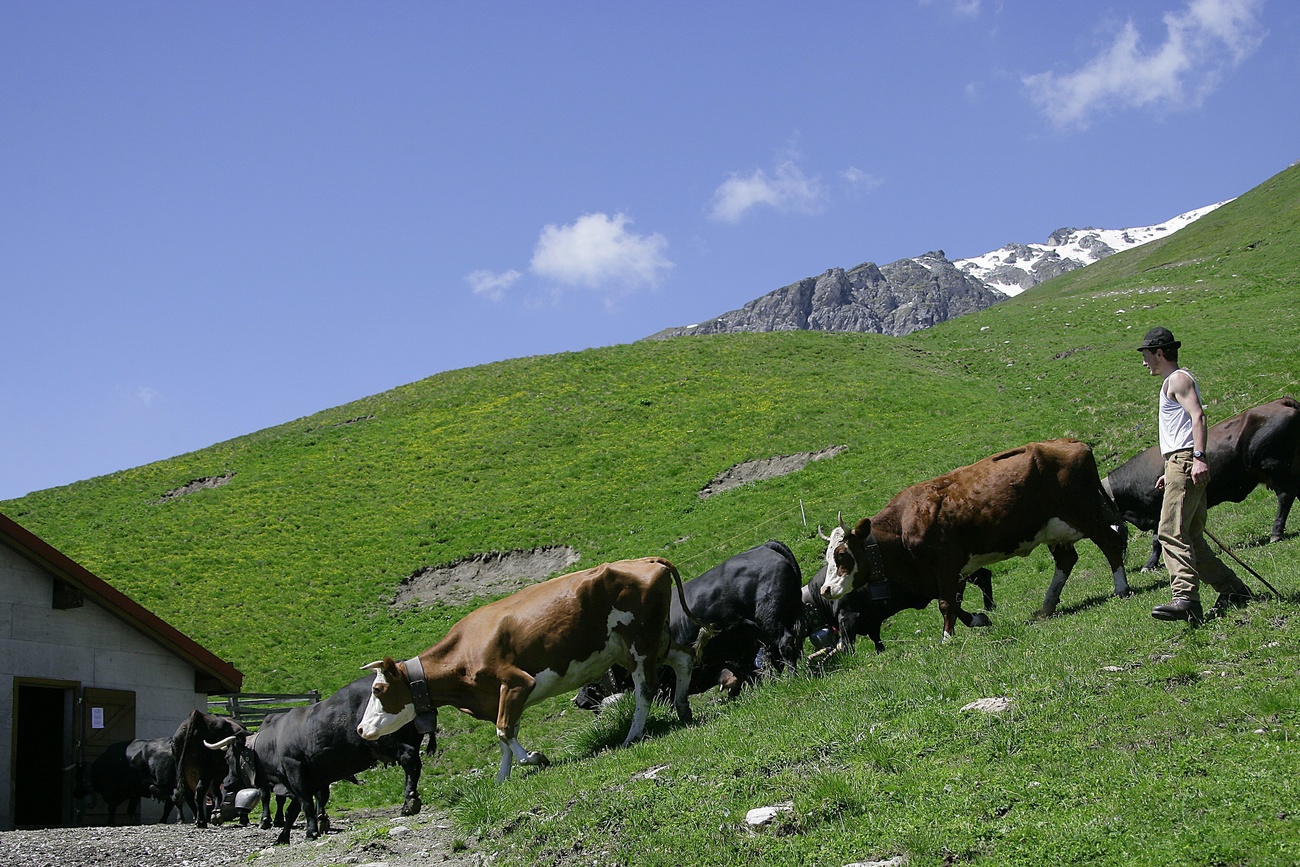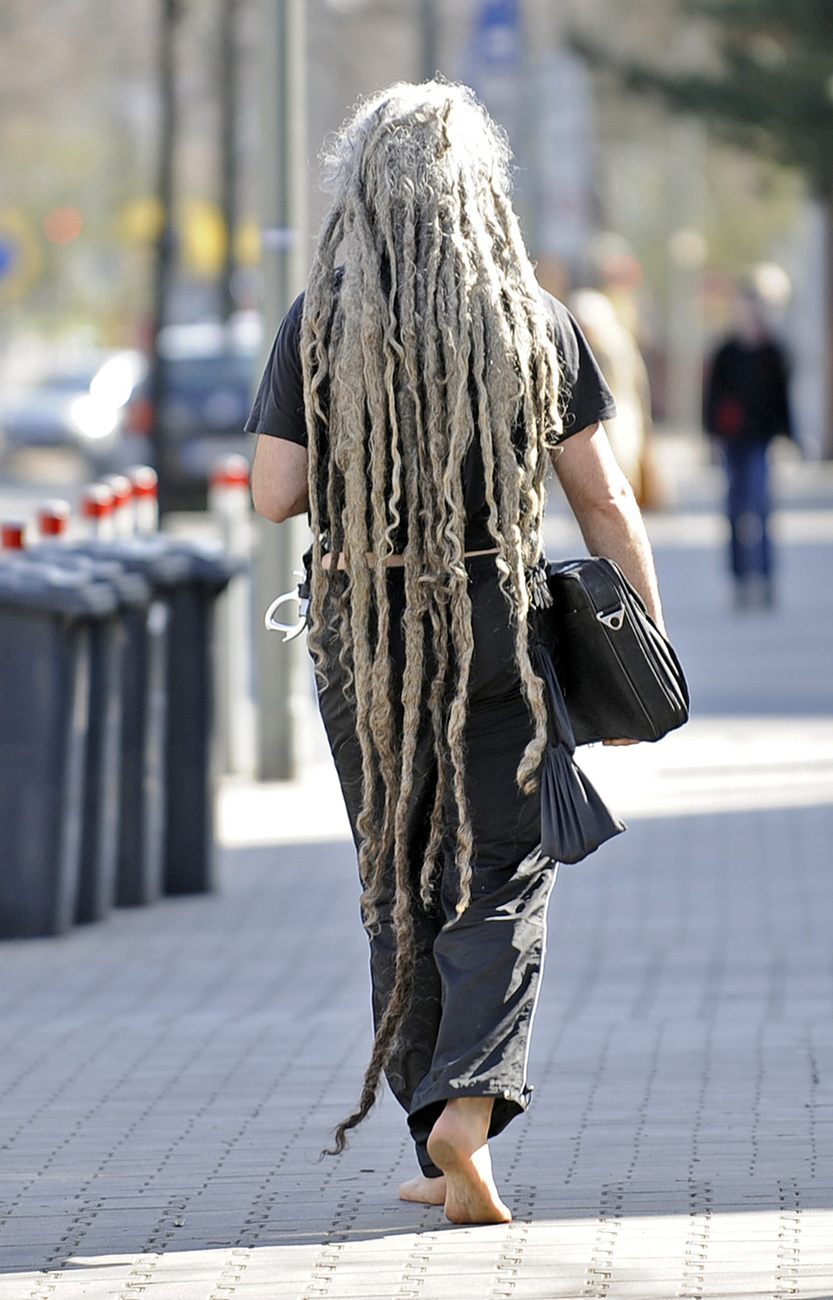

Switzerland Today
Greetings from Bern!
Temperatures are cooling but tempers are rising as newspapers and social media debate whether it’s acceptable for white musicians to wear dreadlocks and African clothes and play reggae. This follows a concert by a Bernese band that didn’t go down well with some people in the audience. Read the details below, along with other news and stories from Switzerland.

In the news: Swiss charity Caritas is seeking 700 volunteers to help struggling Alpine farmers during the current high season.
- It said about 90 mountain families need help. The relief organisation is looking for mentally and physically healthy people aged 17-70 who can lend a hand and appreciate an insight into a new world. It says this volunteer work often leads to lifelong friendships.
- Staying in the mountains, an alpine lodge originally in Italy is now two-thirds in Switzerland thanks to global warming. This is because the border marked by the Theodul glacier is shifting northwards as it melts. The Matterhorn Guides or Testa Grigia Refuge, which stands at 3,457 metres, has been the subject of intense diplomatic negotiations over three years because of the border shift.
- The big banking news this morning was that Credit Suisse had named Ulrich Körner as its new chief executive officer, replacing Thomas Gottstein. Pressure had been mounting on Gottstein for months over major scandals and losses racked up during his two-year tenure that have hammered shares and angered investors.

Is it acceptable for white musicians to wear dreadlocks and African clothes and play reggae?
This is the thorny question many Swiss commentators are asking themselves at the moment after Bernese band Lauwarm recently abandoned a concert.
Lauwarm comprises five white men, some of whom wear dreadlocks, some of whom wear brightly coloured African clothes on stage. Their songs are a mixture of reggae, “world indie” and pop. Last week they jumped in at short notice for another band at a restaurant in Bern with a left-leaning, alternative clientele.
However, their show didn’t go down particularly well with several people in the crowd, who told the restaurant they didn’t feel comfortable. In a statement quoted in an articleExternal link by newspaper Blick yesterday, the restaurant apologised to “everyone for whom the concert has caused bad feelings”. The organisers spoke of “gaps in awareness” and plan to host a debate on August 19 on cultural appropriation – when members of a dominant culture (usually white) use elements of a minority culture which they have systematically oppressed (for example, African, Native American). White people growing dreadlocks is a commonly cited example.
Accusations of cultural appropriation in the music industry are as old as the industry itself, with many white producers – and artists such as Elvis – getting rich from songs that went unheard when sung by their (uncredited) black composers. White rapper Eminem also got caught up in the debate, as did British reggae band UB40, whose (white and black) members made a fortune from pop versions of Jamaican classics (er, and a song by a white Jewish New Yorker (Neil Diamond) in the case of Red Red Wine).
So can reggae only be played by people who look like Bob Marley (who in fact had a white British father)? “We were completely taken aback,” Lauwarm singer Dominik Plumettaz told Blick. “When we played our first set of songs there was a good atmosphere. People were enjoying themselves – there was no sense of unease.” But during the break he says the restaurant told them about the complaints. “After that we felt uncomfortable and decided to stop. Unfortunately the critics remained invisible and we couldn’t have a conversation with them, which we regret very much.”
Plumettaz dismisses accusations of cultural appropriation. “I understand that certain people are sensitive to this issue, but music lives from the mix of cultures,” he says. “We’ve been combining elements of reggae, pop and world indie in our sound for years and have never had a problem with it.”
“We treat all cultures with respect, but we also stand by the music we play, our appearance and the way we are,” the band wrote on its Instagram accountExternal link today. “Basically, we think there needs to be a discussion about the definition of and difference between inspiration and appropriation.”

In April 2020, with the arrival of Covid-19, political analyst Martina Mousson expressed concerns about the curtailment of parliament and political rights in Switzerland. Two years on, she is visibly more relaxed about things.
What traces has the pandemic left on Swiss politics? Over two years ago, at the beginning of the pandemic, we put this question to Mousson, a project manager at the research and polling institute gfs.bern. Now we present her with her statements and predictions from April 2020, to see which of them came about and which not. After the initial shock, however, Mousson is now much more positive about how democracy dealt with Covid-19.
More

In compliance with the JTI standards
More: SWI swissinfo.ch certified by the Journalism Trust Initiative






























